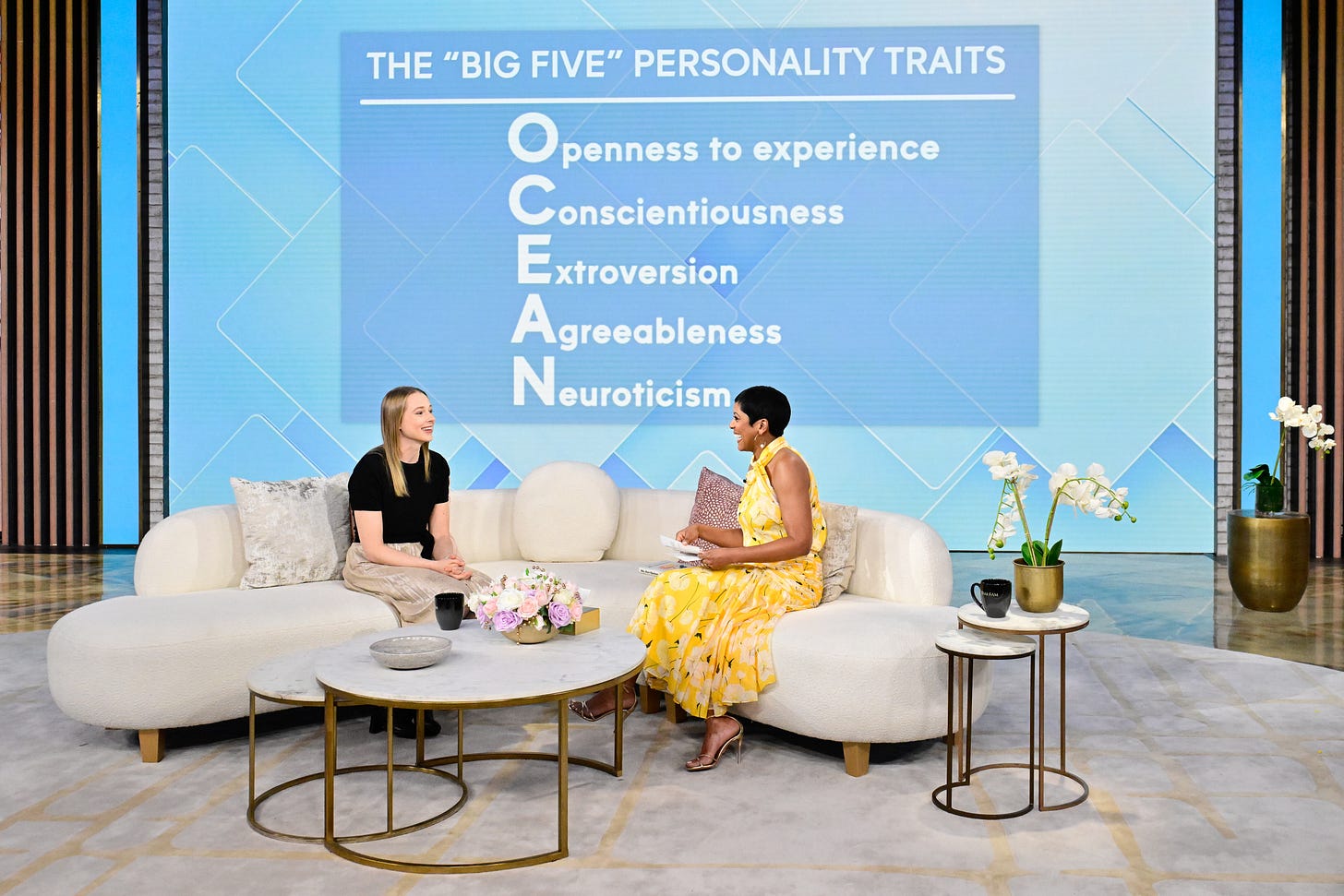Event alert: I’ll be talking with Maria Konnikova on Zoom at 8 ET tonight (March 17). Register here. (It’s free!)
Even a negative, neurotic introvert like me has to admit it: ME, BUT BETTER had a fabulous pub week.
I’m just taking a breath after a week of podcasts, events, appearances, and signings, and I’m filled with gratitude for everyone who came out, listened, bought the book, read an excerpt, waved at me while I walked the streets of New Yawk—really, anything.
I’m especially reflecting on how special it felt to do not just one book signing, but two. My first book, WEIRD, came out in April 2020, a time when people didn’t so much want to muse about weirdness as they wanted to google whether we were all gonna die. I didn’t do a single in-person book event, didn’t sign a single book, and I in fact didn’t see the book in a book store until several years later.
Writing can be very lonely work, and most of the time, you don’t ever get to meet your readers or even hear from them. So it was very moving to me to be able to get to meet my fans (or, more likely, fans of my wonderful moderators Gretchen Rubin and Dan Pink) in person and thank them for supporting me.
And it was *extremely* cool to get to do this:
I wanted to round up some of the excerpts that have published over the past week or so, to give you a better sense of the book:
Washington Post: The good news about anxiety
A concept called the Yerkes-Dodson curve shows that when people have very high levels of anxiety, they don’t tend to perform well. They might be so worried about a big work project that they avoid getting started, for example. But at very low levels of anxiety, performance also suffers: They might be so relaxed that they rush through the project to watch Netflix.
Vox: Introverts should (sometimes) act like extroverts:
If I ever need a reminder that I’m not a natural extrovert, I need only to look at the journal I kept during the early days of my improv classes. “I am having incredible dread about improv tomorrow,” I wrote one day. “I would literally pay any amount to get out of this class,” I moaned on another. “You can’t be bad at improv, but I feel like I am bad at improv,” I wrote after a class during which I gave up in the middle of a game called Big Booty and said simply, “I can’t take this anymore.”
Oprah Daily: A Skeptic's Guide to Meditation
[My meditation teacher] would often reference a parable about the “double arrow”: When something bad happens, don’t make it worse by dwelling on how bad it is. If, say, you didn’t get as much work done as you meant to, don’t harangue yourself for failing. You’ve already been struck by the arrow of misfortune; don’t then impale yourself on the arrow of self-blame.
Well+Good: Can You Fundamentally Change Your Personality? New Book Investigates
People understandably try to avoid difficult feelings like discomfort, sadness, or anxiety. But those feelings can be a sign that something matters to you, and is therefore worth pursuing. In fact, a type of psychotherapy called Acceptance and Commitment Therapy, or ACT, suggests that what we cherish most is often precisely what prompts deep feelings of anguish and uncertainty. ACT encourages you to identify what it is you care about—your values—and behave in a way that accords with those values, even if doing so frightens you at times. I find it easiest to remember ACT through this acronym: accept your negative feelings (A), commit to your values (C), and take action (T) toward the kind of life you want to live. It can be a helpful sequence to remember when you're trying on new personality traits. In the case of improv, that might mean accepting that I feel stage fright, recognizing that one of my values is to be more outgoing, and doing the showcase anyway.
The Big Think: The Big 5 personality traits you can change with practice
In practice, this means that change requires doing things differently. You can’t just say you’ll start exercising or socializing; you have to commit. Personality isn’t based on what we say we’ll do. It’s rooted in what we actually do, which becomes what we think about. Even though personality was then a hazy concept, this is something even the ancients implicitly understood. In his Nicomachean Ethics, Aristotle noted that “we become builders by building and harpists by playing the harp. Similarly, it is by doing just acts that we become just, by doing temperate acts that we become temperate, by doing courageous acts that we become courageous.” By performing the acts of a different personality, you can change yours.
Next Big Idea Club: How to Build a Routine that Unlocks the Best Version of You
At times, personality change will feel very uncomfortable. You are going to hang out with a group of potential new friends and feel timid and jittery. You are going to be so bored during meditation that you compose an entire work email. But that discomfort doesn’t mean you should rethink changing your personality.
One more request: If you’ve already bought the book, THANK YOU. If you enjoyed it, please leave a review on Amazon. Getting lots of reviews really helps authors, so you aren’t just hollering into a void.






Fake it til you make it.
Hard pill to swallow,but it’s true.